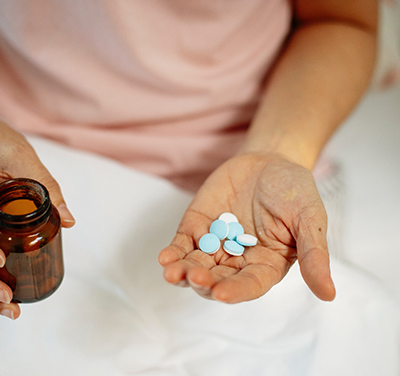Researchers are constantly at work, trying to develop new treatments for the broad range of gastroenterology diseases. When lab tests show promise, the drug may proceed to clinical trials. The team at New Hope Clinical Research have extensive experience in conducting clinical trials for investigative gastroenterology treatments, but they count on volunteers to join as study participants. If you’d like to participate in a clinical trial, call the clinic in Charlotte, North Carolina, or book an appointment online.
New Hope Clinical Research
Research Clinic located in Charlotte, NC

Phase I-IV Q & A
What are clinical trials?
When researchers discover a new drug or a new medical procedure, they first perform many years of laboratory tests. When the lab results are positive, the data goes to the US Food and Drug Administration (FDA) for approval to start a clinical trial.
Clinical trials are studies in which investigational drugs and procedures are tested in people to see if they’re safe, effective, and better than the current standard of care.
Why are clinical trials conducted in phases?
Clinical trials are separated into phases to ensure the safety of the volunteers receiving the medication. Each phase is treated like a separate clinical trial. At the end of every phase, the team at New Hope submits their results to the FDA.
The FDA can approve the study, allowing them to advance to the next phase. Or the FDA can stop the study if the results aren’t as expected or if there’s any concern about safety.
What are phases I-IV?
The clinical trials conducted at New Hope Clinical Research go through four phases:
Phase I
Phase I focuses on safety and how the drug is metabolized. The team at New Hope Clinical Research also test for any side effects that may occur when the dosage increased. Phase I involves about 20-100 volunteers and usually takes several months to complete. About 70% of all experimental drugs are approved to move on to phase II.
Phase II
During phase II, the drug is tested for effectiveness. This phase includes up to several hundred patients, who are separated into groups.
One group receives the standard treatment or a placebo, while the other group receives the experimental drug. No one involved in the study — not the participants or the researchers — knows which type of treatment was assigned to each group.
Phase II can last up to two years. At the end of that time, about one-third of experimental drugs successfully complete the study and move on to Phase III.
Phase III
The third phase involves large-scale testing with several hundred to several thousand patients. A large-scale study provides extensive information about the drug’s safety and effectiveness, as well as a range of possible adverse reactions.
About 70-90% of drugs successfully complete phase III testing, which means they receive FDA approval to go on the market. That’s when phase IV begins.
Phase IV
Phase IV studies are ongoing after the drug is used by consumers. During phase IV, the drug is continuously monitored for safety, long-term effectiveness, and cost-effectiveness. Information is also collected to compare the new drug’s results with other drugs on the market and to study how it improves the patient’s life.
After the information obtained during phase IV is evaluated by the FDA, the drug may be taken off the market or the FDA could put restrictions on its use.
The team at New Hope Clinical Research specialize in conducting clinical trials for treatments to help a wide range of health problems, from cardiovascular and gastrointestinal disease to Alzheimer’s disease and psychological disorders.
If you’re interested in joining a clinical trial, call New Hope Clinical Research or book an appointment online.








